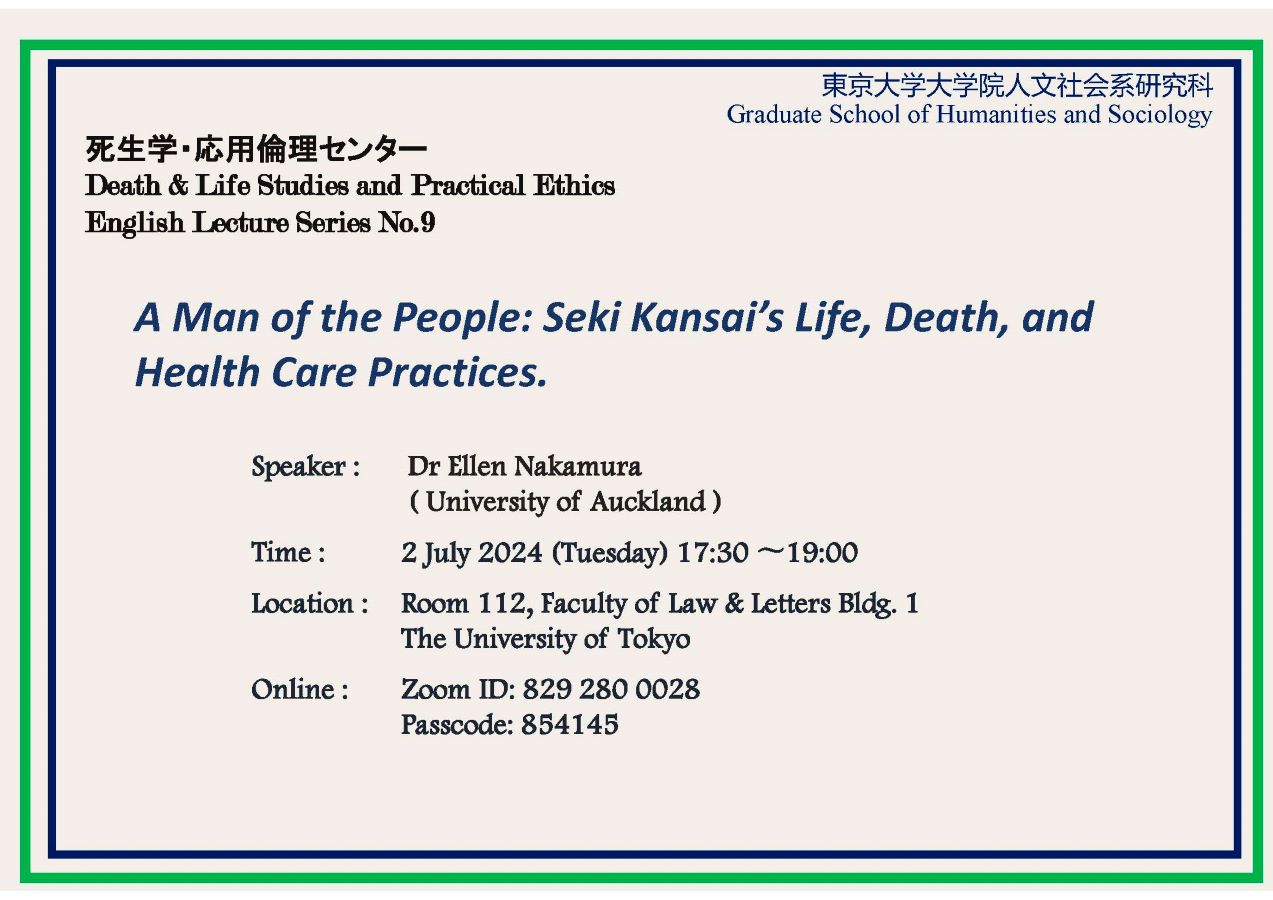Death & Life Studies and Practical Ethics Lecture Series
Number 009
Ellen Nakamura, "A Man of the People: Seki Kansai’s Life, Death, and Health Care Practices."
【日時】2024年7月2日(火)17:30-19:00
【会場】 東京大学本郷キャンパス 文学部法文1号112教室
【オンライン会場】Zoom ID: 829 280 0028
【参加について】参加無料・事前予約不要
【使用言語】英語(通訳なし)
【主催】東京大学大学院人文社会系研究科 死生学応用倫理研究室
【共催】東京大学大学院人文社会系研究科
【助成】布施学術基金
※この講演会は布施学術基金により助成を受けています。
Speaker: Ellen Nakamura (University of Auckland)
Abstract
This talk has two aims: 1) to introduce my recent work on the life and career of Seki Kansai (1830-1912) within the context of Japan’s late nineteenth century modernization of medicine; and 2) to explore some preliminary ideas about the role of preventative health care practices (yōjō) in Seki Kansai’s thought. Seki Kansai is quite well known in Japan, where his philosophy of life continues to attract fans, but there is little about his life and work in English. My research studies Kansai alongside other doctors who lived through the transition from the Tokugawa to the Meiji era. Some of them, like Kansai, experienced remarkable social and geographical mobility because of their training in Western medicine. But even with such training, it was not necessarily an easy transition into the Meiji era. After the Restoration, Kansai refused official appointments as a hospital administrator and military doctor, and voluntarily returned his status as a former samurai to live as a commoner.
As a medical practitioner, Kansai wrote several manuals about healthy living (yōjō). His approach was holistic; he saw self-discipline, love of nature, duty to family and nation, and emotional wellbeing as being just as important as medicine in achieving a happy and healthy life. Yet, Kansai himself was also prone to bouts of depression and eventually took his own life in 1912. This talk will explore some of these contradictions in Kansai’s life and thought, and raise questions for discussion and further research.


